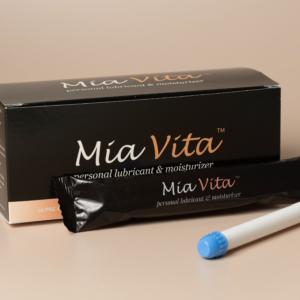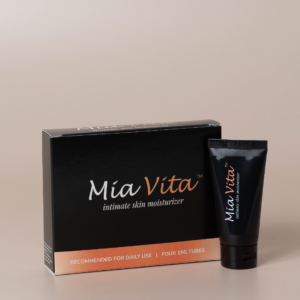
Arriving with or without warning, migraines are some of the most disruptive and unwelcome conditions. And while most everyone experiences a headache from time to time, migraines are, in fact, a predominantly female condition.
By far, more women suffer from migraines than men. Why? The answer, as it often does, lies in our hormones. Explore how the changes in estrogen levels can contribute to migraines and how you can learn to prevent and manage migraine symptoms.
What Is a Migraine?
Migraines are a neurological disorder: a condition that impacts your brain, nerves, and spinal cord. A tension headache can turn into a migraine, but a migraine is not simply a headache. So, how do you distinguish between the two?
Consider the following questions:
- Do you feel the headache in one spot and on one side of your head?
- Does your headache last between four and 72 hours?
- Do bright lights, smells, or sounds make you more uncomfortable?
- Do you feel nauseous?
An answer of yes to all of the above indicates you have (or had) a migraine. Tension headaches, in contrast, wrap around your whole head and are not as severe or long-lasting.
Types of Migraines
Migraines can fall into different categories based on cause and symptoms.
Two of the most common types of migraine are with aura or without aura. Migraines with aura can cause blurry vision, blind spots, bright flashes of light, or other neurologic sensations before a migraine begins and often last about an hour—migraines without aura cause no such symptoms.
Up to 70% of women who experience migraines notice a direct correlation with their periods.
Migraines associated with our menstrual cycles are either pure menstrual migraines or menstrual-related migraines.
Pure menstrual migraines only occur at the beginning of your period (or up to two days before) and do not happen any other time. Menstrual-related migraines include similar symptoms but recur throughout your cycle, not only at the beginning of a period, and most are without aura. Both types are stubborn to treat and can last up to seven days.
What to Know about Migraines and Women’s Hormones
The exact cause of these intense, one-sided disorders continues to confound researchers who, at the moment, hypothesize a combination of family history and your environment. Yet the high number of women who experience menstrual migraines points to another cause: our hormones.
According to the American Migraine Foundation, one in five women endure migraines, and two out of every three experience migraines during their menstrual cycle.
Without question, our hormones play a role in the development of migraines. How, exactly, is another question entirely.
The Relationship Between Migraines, Estrogen, and Serotonin
Estrogen, a hormone responsible for managing women’s reproductive systems and many other bodily functions, can “influence our pain-processing networks” in our brains and directly affect our neurotransmitters (chemical messengers), including serotonin.
Scientists in Spain hypothesize our sex hormones can make the cells around the primary nerves in our brain more sensitive to “migraine triggers.” And while testosterone, a male sex hormone, appears to offer protection against migraines, female sex hormones like estrogen seem to make the cells more sensitive to triggers.
Another theory relates to how much serotonin you have and how much (or little) your brain produces. Migraines caused by low serotonin levels and production impact both men and women. And while we know estrogen does influence serotonin, we need more research and non-animal studies to confirm exactly how the two influence each other and contribute to hormone-related migraines in women.
The Relationship Between Migraines and Changing Estrogen Levels
Before puberty, boys and girls experience about the same number of migraines. When we enter puberty, however, the rate drastically changes, and girls far outpace boys in terms of migraine frequency.
Studies note that the decline of estrogen right before we start our periods most often triggers a migraine attack. Changes in estrogen that lead to eventual withdrawal can also trigger severe migraines, such as hormonal fluctuations during perimenopause.
On the other hand, as estrogen levels rise during pregnancy, women who typically experience hormonal or menstrual migraines often find reprieve. Women who enter menopause similarly find their migraines lessen or go away entirely as their hormone levels stabilize.
Why do some women experience migraines and others do not or only feel slight headaches during their menstrual cycles? One study suggests women who experience hormonal migraines are simply more sensitive to changes in estrogen levels than other women. Per usual, we need more studies to determine
It’s also important to note that not every woman who experiences hormone-related migraines does so in the same way. Menstrual migraines vary by severity, length, and age, and menstrual-related migraines vary by timing. Whether or not you take hormone-replacement therapy or birth control can also impact whether or not you experience more or less frequent migraines.
How to Prevent and Manage Migraine Symptoms
Effective treatment for migraines exists, yet it can take trial and error to find what works best for you. The more you learn about the root causes of your migraine and can determine its type— and confirm whether or not it’s connected to your menstrual cycle—the more it can help you determine the way forward.
Some treatments for migraines follow traditional headache prevention routes, such as drinking plenty of water, getting enough sleep each night, and taking steps to reduce daily stressors.
But, you may recall, some migraines develop out of the blue or come like clockwork as you start your period. In these cases, you can still take steps to both prevent and manage recurring migraines.
Certain supplements may help reduce the severity of migraines, including magnesium, vitamin B2 (riboflavin), and coenzyme Q10. Talk to your doctor about which supplements to take and how much. Your doctor may also recommend a blood test before recommending supplementation for your migraine symptoms.
People who experience migraines have also found relief through physical therapy to reduce tension in the neck and shoulders, acupuncture to lower migraine-related pain, and biofeedback.
Biofeedback can help you learn to control processes in your body, such as your blood pressure and breathing rate, to lower stress and reduce pain. Practitioners hook you up to sensors that measure your heart rate and brain waves, for example, to train you to recognize (and eventually control) these functions. Some find that biofeedback reduces migraine severity and others report mixed results.
For more severe migraines, your doctor may prescribe a common and effective medication called triptans. Triptans work with the serotonin receptors in your brain to help prevent migraines. Certain migraine medications, like triptans, can also come in the form of nasal sprays for direct-to-bloodstream, fast-acting relief.
The implications of how migraines affect our day-to-day lives are immense. If you are prone to migraines, start documenting your symptoms and frequency. The more information you can provide your doctor, the better they can pinpoint the root cause(s) of your migraines and help you find relief.
FemmePharma has been helping women navigate menopause for over two decades. No matter where you are in your journey, you deserve to have knowledgeable, intimate healthcare partners to help you feel your best. Explore our other articles, podcast episodes with women’s health experts, and products to ease your transition into menopause.


